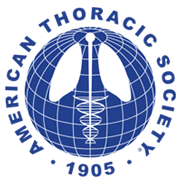HAUPTMENÜ
AWARDS
Forschergeist gefragt: 14. Novartis Oppenheim-Förderpreis für MS-Forschung ausgelobt
FernstudiumCheck Award: Deutschlands beliebteste Fernhochschule bleibt die SRH Fernhochschule
Vergabe der Wissenschaftspreise der Deutschen Hochdruckliga und der Deutschen Hypertoniestiftung
Den Patientenwillen auf der Intensivstation im Blick: Dr. Anna-Henrikje Seidlein…
Wissenschaft mit Auszeichnung: Herausragende Nachwuchsforscher auf der Jahrestagung der Deutschen…
VERANSTALTUNGEN
Wichtigster Kongress für Lungen- und Beatmungsmedizin ist erfolgreich gestartet
Virtuelle DGHO-Frühjahrstagungsreihe am 22.03. / 29.03. / 26.04.2023: Herausforderungen in…
Pneumologie-Kongress vom 29. März bis 1. April im Congress Center…
Die Hot Topics der Hirnforschung auf dem DGKN-Kongress für Klinische…
Deutscher Schmerz- und Palliativtag 2023 startet am 14.3.
DOC-CHECK LOGIN
Some COVID-19 patients still have coronavirus after symptoms disappear
New York, NY, USA (March 27, 2020) — In a new study, researchers found that half of the patients they treated for mild COVID-19 infection still had coronavirus for up to eight days after symptoms disappeared. The research letter was published online in the American Thoracic Society’s American Journal of Respiratory and Critical Care Medicine.
In „Time Kinetics of Viral Clearance and Resolution of Symptoms in Novel Coronavirus Infection,“ Lixin Xie, MD, Lokesh Sharma, PhD, and co-authors report on a study of 16 patients with COVID-19, who were treated and released from the Treatment Center of PLA General Hospital in Beijing between January 28 and Feb. 9, 2020. Patients studied had a median age of 35.5 years.
Researchers collected samples from throat swabs taken from all patients on alternate days and analyzed. Patients were discharged after their recovery and confirmation of negative viral status by at least two consecutive polymerase chain reaction (PCR) tests.
„The most significant finding from our study is that half of the patients kept shedding the virus even after resolution of their symptoms,“ said co-lead author Dr. Sharma, instructor of medicine, Section of Pulmonary, Critical Care & Sleep Medicine, Department of Medicine, Yale School of Medicine. „More severe infections may have even longer shedding times.“
The primary symptoms in these patients included fever, cough, pain in the pharynx (pharyngalgia) and difficult or labored breathing (dyspnea). Patients were treated with a range of medications.
The time from infection to onset of symptoms (incubation period) was five days among all but one patient. The average duration of symptoms was eight days, while the length of time patients remained contagious after the end of their symptoms ranged from one to eight days. Two patients had diabetes and one had tuberculosis, neither of which affected the timing of the course of COVID-19 infection.
„If you had mild respiratory symptoms from COVID-19 and were staying at home so as not to infect people, extend your quarantine for another two weeks after recovery to ensure that you don’t infect other people,“ recommended corresponding author Lixin Xie, MD, professor, College of Pulmonary and Critical Care Medicine, Chinese PLA General Hospital, Beijing.
The authors had a special message for the medical community: „COVID-19 patients can be infectious even after their symptomatic recovery, so treat the asymptomatic/recently recovered patients as carefully as symptomatic patients.“
The researchers emphasized that all of these patients had milder infections and recovered from the disease, and that the study looked at a small number of patients. They noted that it is unclear whether similar results would hold true for more vulnerable patients such as the elderly, those with suppressed immune systems and patients on immunosuppressive therapies.
„Further studies are needed to investigate if the real-time PCR-detected virus is capable of transmission in the later stages of COVID-19 infection,“ Dr. Xie added.
—
About the American Journal of Respiratory and Critical Care Medicine
The AJRCCM is a peer-reviewed journal published by the American Thoracic Society. The Journal takes pride in publishing the most innovative science and the highest quality reviews, practice guidelines and statements in pulmonary, critical care and sleep medicine. With an impact factor of 16.494, it is one of the highest ranked journals in pulmonology. Editor: Jadwiga Wedzicha, MD, professor of respiratory medicine at the National Heart and Lung Institute (Royal Brompton Campus), Imperial College London, UK.
About the American Thoracic Society
Founded in 1905, the American Thoracic Society is the world’s leading medical association dedicated to advancing pulmonary, critical care and sleep medicine. The Society’s 15,000 members prevent and fight respiratory disease around the globe through research, education, patient care and advocacy. The ATS publishes three journals, the American Journal of Respiratory and Critical Care Medicine, the American Journal of Respiratory Cell and Molecular Biology and the Annals of the American Thoracic Society.
American Thoracic Society, 27.03.2020 (tB).



